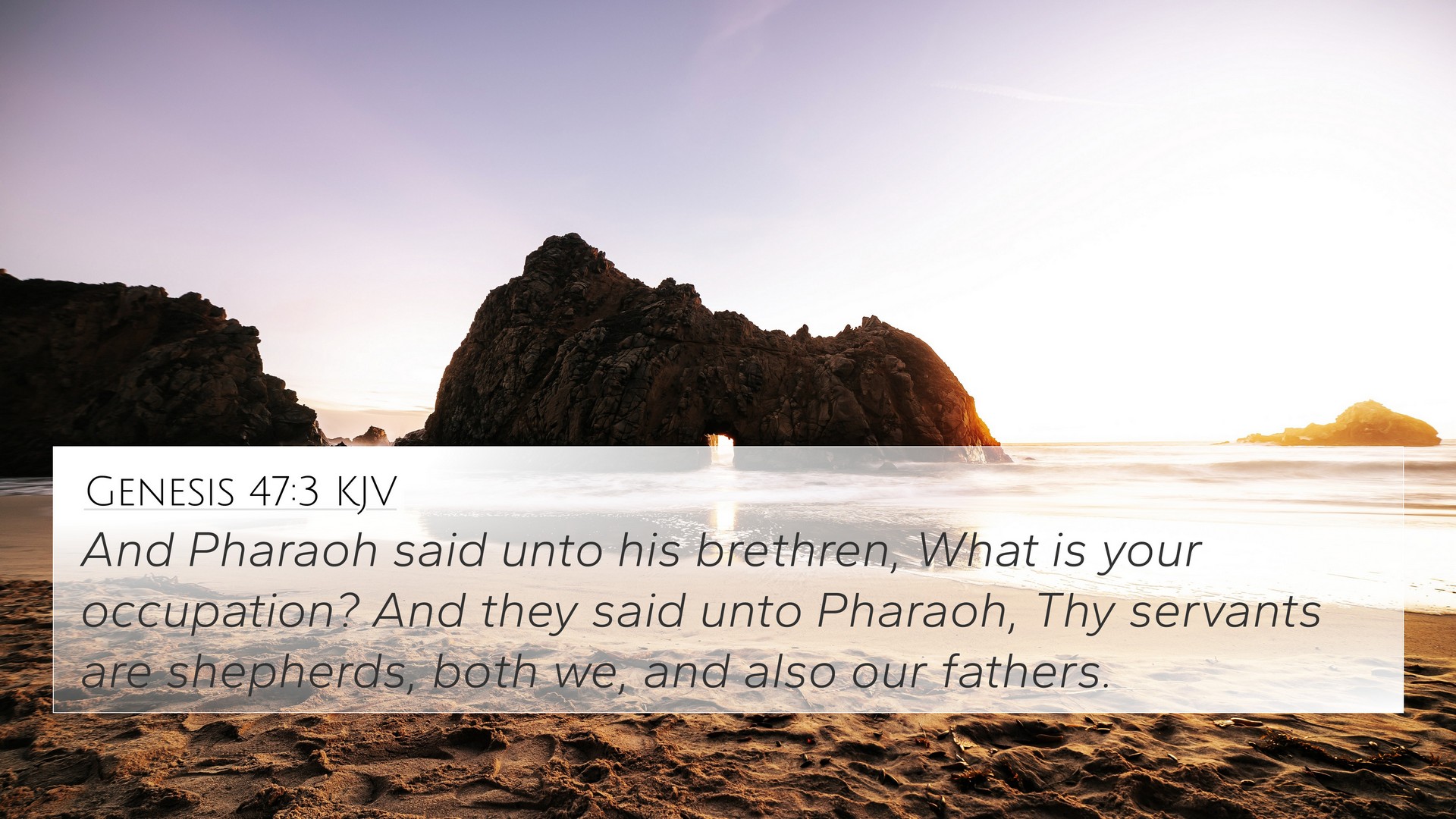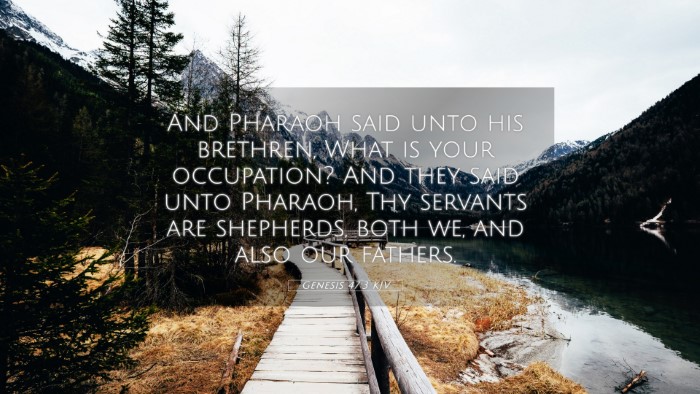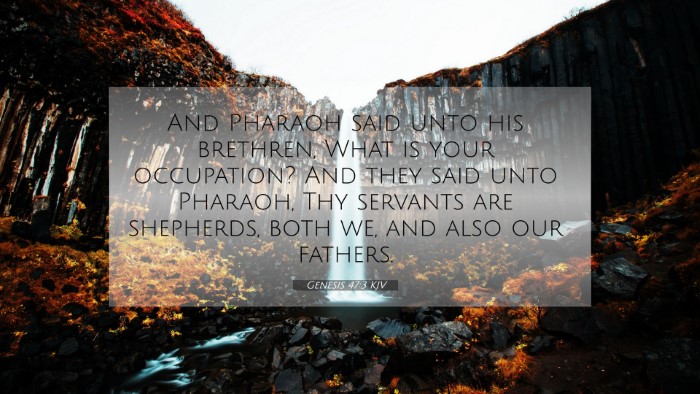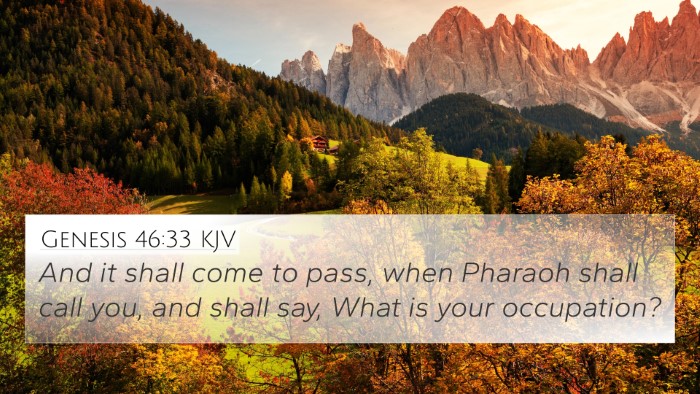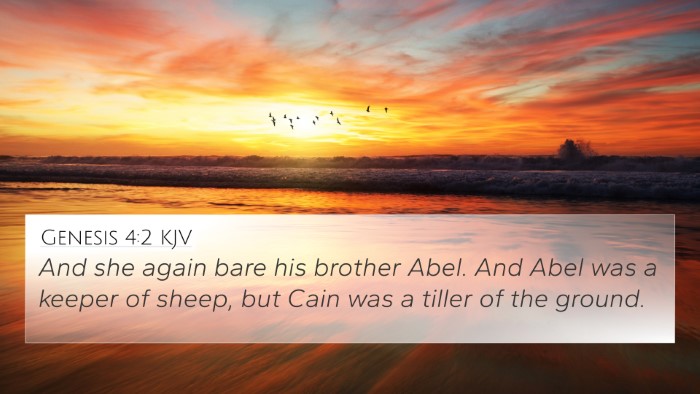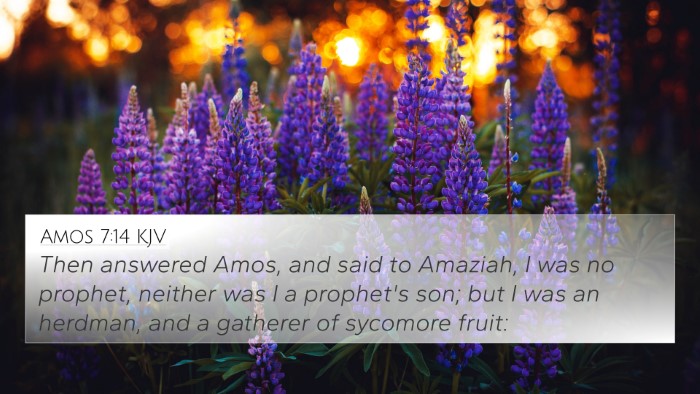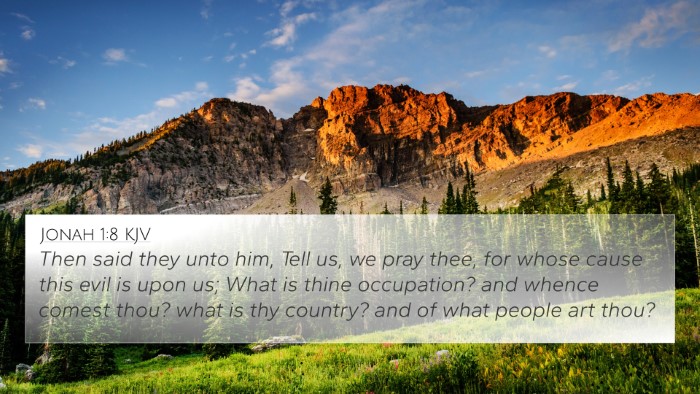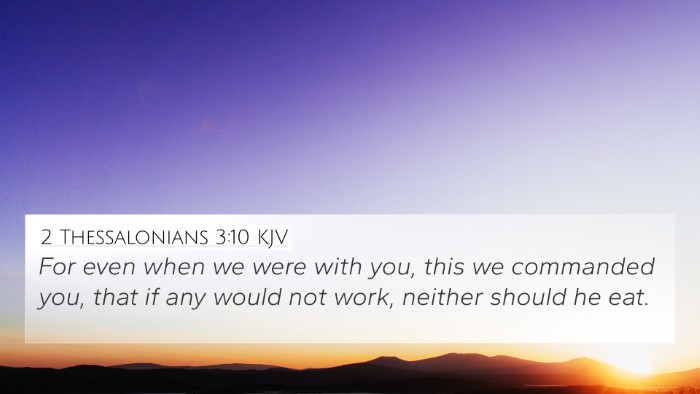Understanding Genesis 47:3
Genesis 47:3 is a pivotal verse in the narrative concerning Joseph and his family during a time of famine. It serves as an important moment of dialogue and character development. In this verse, we find Joseph's brothers addressing Pharaoh, expressing their identity as shepherds and their purpose for coming to Egypt. Their occupation as herders is reflective of their historical roots, as well as a deliberate statement about their reliance on God’s provision.
Verse Analysis
In this verse, Joseph’s brothers say:
"We are shepherds, and our father’s household is in the land of Canaan, and we have come here to sojourn."
This statement highlights several key themes, including the importance of identity, familial ties, and divine providence. The brothers' assertion of their profession ties them to the biblical narrative of pastoral life, which is significant throughout Scripture.
Commentary Insights
When we examine this verse through the lens of public domain commentaries, several insights arise:
-
Matthew Henry: Henry emphasizes the significance of the brothers' profession and their status as shepherds, which is not just a statement of identity but also a recognition of their reliance on God's care, as seen throughout the history of the Israelite people.
-
Albert Barnes: Barnes notes that this declaration serves as a cultural explanation for their presence in Egypt. By mentioning their pastoral lifestyle, the brothers highlight their need for land where they can feed their flocks, thus underlining their dependence on fertile pastures.
-
Adam Clarke: Clarke points out the social implications of being shepherds in Egyptian society, where such a profession was looked down upon. This indicates a deeper layer of their vulnerability and the necessity for divine favor.
Bible Verse Cross-References
To fully grasp the implications of Genesis 47:3, we can connect it with various other scripture passages that share thematic elements or contextual links. Here are 10 cross-references that relate to this verse:
-
Genesis 30:31-36 - This passage describes Jacob's early wealth through his herds, illustrating the importance of livestock in their lives.
-
Psalm 23:1 - "The LORD is my shepherd; I shall not want." This verse resonates with the identity of the brothers and their reliance on God's provision.
-
Exodus 3:1 - Moses tending to his father-in-law's sheep connects the theme of pastoral life with God's calling.
-
John 10:11 - Jesus describes Himself as the Good Shepherd, establishing a redemptive connection to the shepherding theme found in Genesis.
-
Amos 7:14 - Amos identifies himself as a shepherd, linking the prophetic role with shepherding.
-
Hebrews 11:9 - References to Abraham and his descendants living as strangers in the land, paralleling the plight of Joseph's family in Egypt.
-
Matthew 2:13-15 - Joseph fleeing to Egypt with Mary and Jesus mirrors the mobility of the shepherds in search of sustenance and security.
-
Ephesians 2:19-20 - Discusses the idea of being citizens of heaven, akin to the brothers being sojourners in Egypt.
-
Acts 7:9-10 - Stephen recounts the history of the patriarchs, including Joseph, tying their story directly to God’s plan amidst challenges.
-
Luke 2:8-12 - The announcement of Jesus' birth to shepherds links back to the theme of shepherds as protectors and bearers of good news.
Thematic Connections
The narrative surrounding Genesis 47:3 encourages a closer look at the connections between Bible verses. It presents a rich opportunity for comparative Bible verse analysis regarding themes of faith, identity, and providential care. The act of recognizing such themes encourages readers to consider:
- How identity shapes our understanding of divine provision.
- Connecting Old Testament narratives to New Testament revelations.
- The role of shepherding as a biblical theme that enhances our understanding of God's relationship with His people.
Tools for Bible Cross-Referencing
For those seeking a deeper understanding of Genesis 47:3 and similar verses, utilizing bible cross-reference guides and bible concordances can be incredibly helpful. These tools aid users in:
- Finding related verses and enhancing studying methods.
- Understanding the broader narrative context within the Scriptures.
- Identifying cross-referenced themes throughout the Bible, lending insight into inter-Biblical dialogue.
Conclusion
Genesis 47:3 serves not only as a historical account but also invites contemporary readers to explore their identity in Christ and the significance of their spiritual heritage. By approaching biblical texts with the aid of cross-referencing resources, we can gain a holistic view of scriptures and their interconnections.
